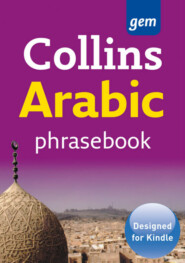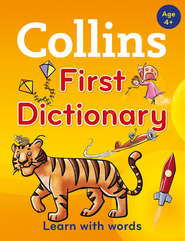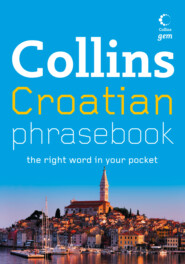По всем вопросам обращайтесь на: info@litportal.ru
(©) 2003-2024.
✖
Scots Dictionary: The perfect wee guide to the Scots language
Настройки чтения
Размер шрифта
Высота строк
Поля
claim In Glasgow, to claim someone is to announce one’s intention to beat them up: You’re claimed after school.
clan In Scotland, a clan is a group of families with a common surname united under a single chief. Each clan member is, theoretically, descended from a single ancestor from whom the name of the clan derives. Members often bear the name of the founder preceded by Mac-, a Gaelic term for ‘son of’: MacDonald. The clan system went into terminal decline in the years following the suppression of the 1745 Jacobite rebellion and the process was accelerated by the Clearances, which forced large numbers of Highland Scots abroad to countries such as the USA, Canada, and Australia. Many of the descendants of these emigrants are proud of their Scottish ancestry and some occasionally return to Scotland for clan gatherings. [The word is from the Gaelic clann family]
clanjamfrie (clan-jam-free) or clamjamfrie Clanjamfrie is a word used to refer disparagingly to a group of people, especially if one considers them a rabble. A clanjamfrie is also a varied assortment of things; a mixed bag: The clamjamfrie of tenements, courtyards, and closes which forms Edinburgh’s Old Town.
clap
clap To clap an animal, especially a dog or a horse, is to give it an affectionate pat: It likes ye to clap its wee head. A clap is such an affectionate pat.
clappy-doo (clap-pee-doo) or clabby-doo A clappy-doo is a large black mussel. [The word is from the Gaelic clab enormous mouth plus dubh black]
clapshot Clapshot is a dish consisting of potatoes and turnips which have been boiled and then mashed together in roughly equal quantities: Lunch is fillets of cod served with clapshot, roasted peppers, and chilli oil.
clarsach (klar-saCH) The clarsach was the ancient Celtic harp of Scotland and Ireland. Its use has been revived by folk musicians in both countries this century. [The word is Gaelic and means harp]
clart or clort A clart is a lump of mud or something else unpleasant. A clart is also a dirty mess. [The word is perhaps from the Middle English biclarten defile]
clarty, clatty, or clorty Something that is clarty is messy or dirty: The Tourist Board’s inspectors are encouraged to give clarty accommodation the bum’s rush.
clavie (clay-vee) A clavie is a tar-barrel traditionally set alight in Moray on Hogmanay to bring good luck in the ceremony known as burning the clavie.
claw To claw something is to scratch it: He winna claw an auld heid.
claymore A claymore is a large two-edged broadsword used formerly by Scottish Highlanders. The later single-edged baskethilted sword is often called a claymore. [The word is from the Gaelic claidheamh mòr great sword]
Clearances or Highland Clearances The Clearances of the eighteenth and nineteenth centuries were the removal by landlords, often by force, of the inhabitants from some parts of the Scottish Highlands to make way for sheep and other more lucrative uses of the land. Many Highlanders were re-settled on poorer coastal land and encouraged to combine farming with fishing or kelp-gathering. Large numbers were driven off the land altogether and into emigration overseas or to the cities of the South.
cleek A cleek is a hook or any device shaped like a hook.
cleg or clegg A cleg is a horse-fly with a painful bite. [The word comes from the Old Norse klegge]
click If someone gets a click, they find themselves a person with whom they may establish an amorous relationship.
clint In Southwest Scotland, a clint is a cliff or crag. [The word is possibly from the Danish klint cliff]
clipe A variant spelling of clype.
clipshears or clipshear A clipshears is an earwig. [The name comes from the resemblance of the pincers at the tip of the creature’s abdomen to shears]
clishmaclaver (klish-ma-clay-ver) Clishmaclaver is a word meaning gossip or incessant chatter. [It is a combination of two Scots words, clish to repeat gossip, and claver to talk idly]
cloot Cloot is a Scots word for a piece of cloth or a cloth used as a duster, etc.: Dicht roon the sink wi a cloot.
clootie dumpling (rhymes with booty) A clootie dumpling is a rich dark fruitcake served as a dessert, like a Christmas pudding. It is boiled or steamed in a cloot or cloth. Until the recent past, clootie dumplings were made as a birthday treat for children and, like Christmas puddings, were often made containing sixpences.
clort A variant of clart.
close
close (klohss) In much of Scotland, a close is a narrow lane or passageway leading off a main street: The restaurant is tucked away at the foot of a close off the High Street.Close is often part of the name of such lanes: Advocates Close; Mary King’s Close. A close may also be a passageway connecting a group of houses to a main street. In Glasgow and West Central Scotland, the common entry and stairway from the street in a tenement building is known as a close: Reared up a close in Govan, he feared no-one. In Glasgow and West Central Scotland, a close is also all the flats sharing such a common entry and stairway: The whole close could hear the noise.
cludgie In Scotland’s Central Belt, a cludgie is a toilet: A wee boy’s got locked in the cludgie. [The word is perhaps a conflation of closet and ludge, a Scots form of lodge]
Clyde The Clyde is a river in South Scotland, 170 kms (106 miles) long, rising in South Lanarkshire and flowing northwest to the Firth of Clyde. It divides the City of Glasgow in two and was once the centre of the world’s largest shipbuilding industry, where every type of ship, from ocean liners and battleships to dredgers, were built. At its peak 14 ships a day were launched on the Clyde, and the term Clyde-built was synonymous with quality.
Clydesdale A Clydesdale is a heavy, powerful workhorse of a breed that originated in Scotland.
Clydeside Clydeside is the area of industrial or post-industrial towns along the lower length of the river Clyde. Clydeside also refers to the shipbuilding industry in this area: the Queen Mary, another famous Clydeside ocean liner.Red Clydeside refers to the militant socialist trade union and political activity in the West of Scotland, particularly in the period between the two world wars. Unemployment and disenchantment with governments who were unable to deliver their promises of a better life for working people following the Great War led to greater militancy among the industrial working classes and this was reflected in the number of socialist candidates elected to Parliament from the area.
clype or clipe A clype is a person who tells tales or informs on his or her friends, colleagues, or schoolmates. To clype
Вы ознакомились с фрагментом книги.
Приобретайте полный текст книги у нашего партнера:
Приобретайте полный текст книги у нашего партнера:











